Rats have long been regarded as a pest and there is no better way to clear them from a farm than with a pack of terriers, says Matt Cross

The first rats came fizzing out before anyone was ready. Even Jay, the very model of lurcher sharpness, was taken by surprise as the rodents fled their burrows and made for safety. The terriers, tied to a gate post outside, burst into a frantic chorus of yelps and whines as their quarry ran past, making for the sanctuary of the drystone wall.
It takes a lot to catch the Tweed Valley Rat Pack by surprise. Over the past few years they have built up a reputation as southern Scotland’s foremost ratting outfit and, watching them at work, you can see why. On an icy November morning we were tackling the rats on a mixed farm in the Scottish Borders. Moray, a Penicuik man with the powerful build of a Borders rugby player, was accompanied by the lean and wiry Ed, whose long hair and shark’s tooth earring gave him the air of a pirate. Both were dressed in fleeces and hats embroidered with the pack’s logo. With their smart gear, professional manner and growing Twitter presence, they are the modern face of an old business.
Rats used to be part of daily life for most people. Modern rodenticides, better sewers, concrete and steel have pushed the rat further and further from most of our lives. The adage that “you are never more than 6ft from a rat” has long been debunked and at no time since the brown rat arrived on our shores have we been more distant from them.
As it has been pushed out of our homes, the rat has also been pushed out of our culture. As a child I was given an elderly Guinness Book of Records, which included “the world’s fastest ratting dog”. It seems to have been Jacko, a bull terrier, that fought in the 19th century London rat pits.
Diese Geschichte stammt aus der December 13,2017-Ausgabe von Shooting Times & Country.
Starten Sie Ihre 7-tägige kostenlose Testversion von Magzter GOLD, um auf Tausende kuratierte Premium-Storys sowie über 8.000 Zeitschriften und Zeitungen zuzugreifen.
Bereits Abonnent ? Anmelden
Diese Geschichte stammt aus der December 13,2017-Ausgabe von Shooting Times & Country.
Starten Sie Ihre 7-tägige kostenlose Testversion von Magzter GOLD, um auf Tausende kuratierte Premium-Storys sowie über 8.000 Zeitschriften und Zeitungen zuzugreifen.
Bereits Abonnent? Anmelden

United we stand
Following United Utilities' decision to end grouse shooting on its land, Lindsay Waddell asks what will happen if we ignore our vital moors

Serious matters
An old gamebook prompts a contemplation on punt-gunning
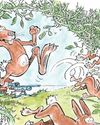
They're not always as easy as they seem
While coneys of the furry variety don't pose a problem for Blue Zulu, he's left frustrated once again by bolting bunnies of the clay sort
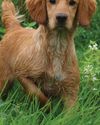
Debutant gundogs
There's lots to think about when it comes to making the decision about when to introduce your dog to shooting

When the going gets rough
Al Gabriel returns to the West London Shooting School to brush up on his rough shooting technique

The Field Guide To British Deer - BDS 60th Anniversary Edition
In this excerpt from the 60th anniversary edition of the BDS's Field Guide To British Deer, Charles Smith-Jones considers the noise they make
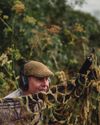
A step too far?
Simon Garnham wonders whether a new dog, a new gun and two different fields in need of protection might have been asking too much for one afternoon's work
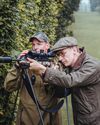
Two bucks before breakfast
A journey from old South London to rural Hertfordshire to stalk muntjac suggests that the two aren't as far detached as they might seem
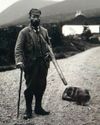
Stalking Diary
Stalkers can be a sentimental bunch, and they often carry a huge attachment to their hill

Gamekeeper
Alan Edwards believes unique, private experiences can help keepers become more competent and passionate custodians of the countryside